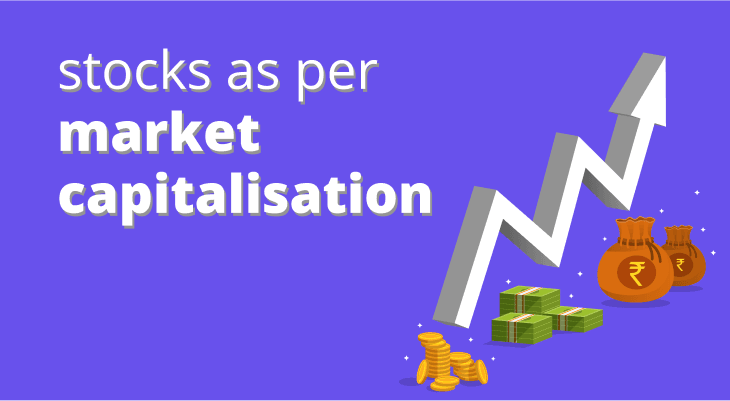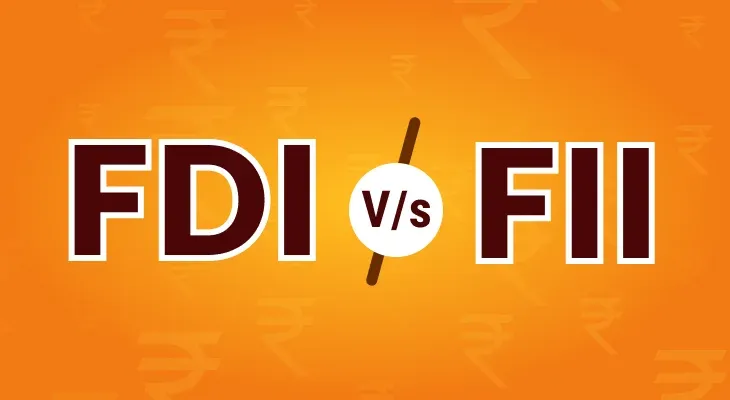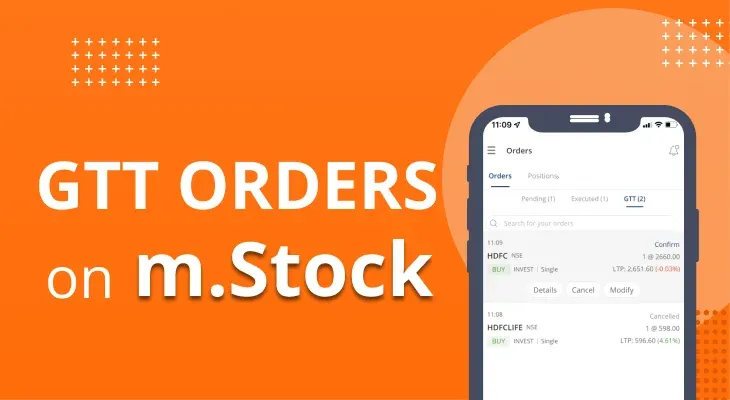
The Impact of Market Volatility on Low-Cost Index Funds
Investors seeking a less expensive, passive investment strategy often turn to low-cost index funds. These funds track market indices and offer diversification at minimal expense. However, market volatility — the rapid and unpredictable movement of stock prices — can significantly influence their performance. While these funds aim to provide stable, long-term returns, understanding how they react to market fluctuations is essential for making informed investment decisions.
Let us explore the relationship between market volatility and index funds, their advantages in turbulent times, and strategies to safeguard your investments from extreme market movements.
Defining Index Funds and Market Volatility
What Are Low-Cost Index Funds?
Low-cost index funds are mutual funds or exchange-traded funds (ETFs) that replicate the performance of a specific market index, such as the BSE Sensex or the NIFTY 50. Unlike actively managed funds, they do not rely on fund managers to select stocks, reducing management fees and transaction costs. These funds are ideal for investors seeking broad market exposure with lower expenses.
Key Features of Low-Cost Index Funds
- Passive Management: These funds track a benchmark index and require minimal intervention, leading to lower costs.
- Low Expense Ratios: Since they don’t require active management, expense ratios are significantly lower, typically ranging from 0.1% to 0.5%.
- Diversification: They provide exposure to a broad range of stocks, reducing the impact of poor performance by any single company.
- Market Performance Replication: Unlike actively managed funds that try to outperform the market, index funds aim to match the market's returns.
- Long-Term Investment Vehicle: Best suited for investors with a long-term perspective, as they benefit from market appreciation over time.
- Transparency: Since these funds track known indices, investors can easily understand and predict the composition of their portfolios.
- Tax Efficiency: Due to minimal buying and selling of stocks, index funds typically generate fewer capital gains taxes compared to actively managed funds.
What Is Market Volatility?
Market volatility refers to the frequency and magnitude of price movements in financial markets. High volatility periods see sharp price swings due to factors such as economic uncertainty, interest rate changes, geopolitical events, and investor sentiment. While volatility can present risks, it also creates opportunities for long-term investors.
How Market Volatility Affects Index Funds
1. Short-Term Price Fluctuations
Since index funds passively track market indices, their value moves in tandem with the broader market. During volatile periods, investors may witness significant short-term price swings, leading to temporary losses or gains.
2. Long-Term Resilience
Despite short-term fluctuations, index funds have historically demonstrated strong long-term growth. Market corrections and slowdowns are often followed by recoveries, meaning that patient investors can benefit from eventual upward trends. This was evident during the Covid pandemic when global markets dropped steeply but then recovered and went on a bull run leading to significant wealth creation for committed investors.
3. Reduced Downside Protection
Unlike actively managed funds that adjust their holdings to mitigate risk, index funds remain fully invested in the tracked index. This means they may suffer steep declines during market downturns but also benefit from eventual recoveries.
4. Volatility Creates Buying Opportunities
While volatility can cause short-term losses, it also provides opportunities for investors to buy index fund units at lower prices. When markets decline, the Net Asset Value (NAV) of index funds drops, allowing investors to accumulate more units at a lower cost, setting them up for higher gains when markets recover.
5. Sector-Specific Volatility Affects Composition
Market volatility does not affect all sectors equally. During economic downturns, defensive sectors like consumer staples and healthcare tend to perform better, while cyclical sectors like technology and luxury goods might experience steeper declines. Since index funds track broad indices, they inherently reflect such sectoral movements, causing temporary underperformance in some areas while others remain stable.
6. Tracking Error May Increase
Most index funds aim to replicate their benchmark as closely as possible, but during periods of high volatility, deviations from the index (known as tracking error) can widen. This can occur due to fund liquidity issues, rebalancing delays, or pricing inefficiencies, temporarily impacting returns.
7. Dividend Yields Can Fluctuate
Many index funds include dividend-paying stocks, but during market downturns, companies may cut or suspend dividends to preserve cash. This impacts investors relying on dividend income, leading to lower yields from index funds during prolonged economic downturns.
8. Psychological Impact on Investors
Volatility often leads to emotional investing, with many retail investors panic-selling during downturns and missing the subsequent recovery. However, since index funds promote passive investing, investors who stay committed to their long-term strategy can avoid reactionary decision-making and benefit from eventual market rebounds.
Pros of Low-Cost Index Funds in Volatile Markets
1. Lower Costs Lead to Higher Net Returns
With expense ratios typically ranging between 0.1% and 0.5%, low-cost index funds help investors keep a larger portion of their earnings, even during volatile market conditions.
2. Diversification Minimises Risk
Index funds offer built-in diversification by investing in multiple companies across sectors. This reduces the impact of individual stock declines on the overall portfolio, making them more resilient during downturns.
3. Market Recovery Potential
Historically, markets recover from volatility-driven declines. Index funds benefit from this pattern, as they capture the entire market upswing rather than relying on fund managers to time investments correctly.
4. No Emotional Investing
During volatile periods, investors often make impulsive decisions, such as panic-selling or chasing high-performing stocks. With index funds, passive investing reduces the temptation to react emotionally, promoting long-term wealth creation.
How to Protect Your Investment in Volatile Times
1. Stick to a Long-Term Strategy
Market fluctuations are inevitable, but staying invested for the long term allows you to benefit from recoveries and compound growth. Avoid making decisions based on short-term market movements.
2. Rupee-Cost Averaging (RCA)
You can reduce the impact of volatility by investing a fixed amount regularly. This approach helps you buy more units when prices are low and fewer when they are high, leading to a lower average cost over time.
3. Maintain an Emergency Fund
Having a separate cash reserve prevents the need to sell investments during downturns. This ensures that your long-term investments remain intact even in financial emergencies.
4. Consider Asset Allocation
A balanced portfolio with a mix of equities, bonds, and alternative assets can help stabilise returns during market turbulence. Adjust your asset allocation based on your risk tolerance and investment goals.
5. Rebalance Periodically
Over time, market fluctuations can shift your asset allocation away from the intended mix. Rebalancing ensures that your portfolio remains aligned with your financial objectives, restoring the right proportion of stocks and bonds.
6. Avoid Panic Selling
Selling during market downturns locks in losses and prevents participation in subsequent recoveries. Historical data suggests that staying invested yields better results than trying to time the market.
Conclusion
Market volatility is an unavoidable aspect of investing, but low-cost index funds remain a reliable vehicle for long-term wealth creation. While they may experience short-term fluctuations, their low fees, broad diversification, and long-term growth potential make them attractive for passive investors. By adopting disciplined investment strategies, such as Rupee-cost averaging, asset allocation, and rebalancing, you can effectively navigate volatility and optimise your investment outcomes. Understanding market cycles and staying committed to a long-term plan ensures that investors can reap the benefits of compounding and market recoveries over time.
FAQ
What are low-cost index funds?
Low-cost index funds are mutual funds or ETFs that track a market index like the NIFTY 50 or the BSE Sensex at a minimal expense. They use a passive investment strategy, meaning they don't require active stock selection, leading to lower fees and broad market exposure.
How does market volatility affect index funds?
Market volatility causes index fund prices to fluctuate as they mirror their benchmark indices. In the short term, this can lead to temporary declines, but over the long term, index funds typically recover as markets stabilise and grow.
Are low-cost index funds a good investment during market downturns?
Yes, index funds remain a strong choice in downturns because they offer broad diversification and historically recover over time. Investors with a long-term outlook can benefit from buying more units at lower prices during market corrections.
Why are index funds considered lower risk despite market volatility?
Index funds diversify investments across multiple companies and sectors, reducing the impact of individual stock declines. Unlike actively managed funds, they do not rely on stock-picking, which can sometimes increase risk.
How can investors protect their index fund investments during volatile markets?
Strategies include sticking to long-term goals, using rupee-cost averaging, maintaining an emergency fund, diversifying across asset classes, and rebalancing periodically to keep a balanced portfolio.
What is Rupee-cost averaging?
Rupee-cost averaging (RCA) involves investing a fixed amount regularly, regardless of market conditions. This strategy reduces the impact of volatility by purchasing more fund units when prices are low and fewer when they are high, leading to a lower average cost.
Do index funds perform better than actively managed funds in volatile markets?
Historically, index funds often outperform actively managed funds over the long run due to lower costs and fewer trading decisions that could go wrong. However, active funds may outperform temporarily if skilled fund managers make the right moves during volatility.
What role does asset allocation play in managing volatility with index funds?
A well-diversified portfolio with a mix of stocks, bonds, and other assets can reduce risk during volatility. For example, combining an equity index fund with a bond index fund can provide more stability during market downturns.
Should I sell my index fund investments during market crashes?
Selling during market downturns locks in losses and prevents you from benefiting from eventual recoveries. Historically, markets rebound over time, and staying invested is generally a better strategy for long-term wealth creation.
How do low-cost index funds compare to high-cost actively managed funds in volatile markets?
Low-cost index funds generally perform better over time due to lower fees, which compound to create higher net returns. Actively managed funds may try to navigate volatility through stock selection, but they often struggle to consistently beat the market after fees.


